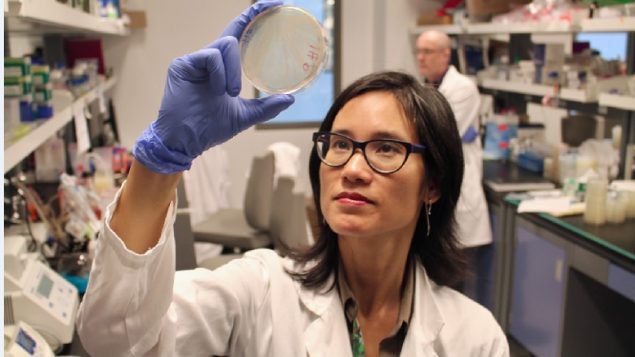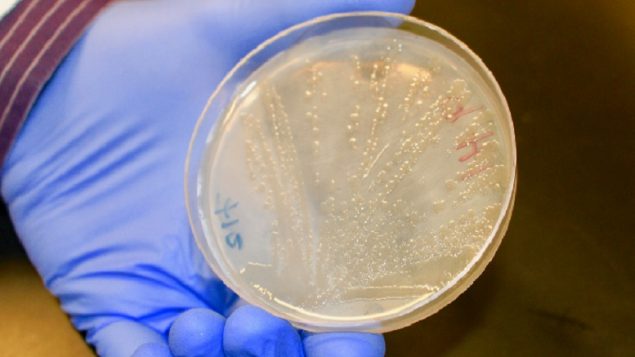Researchers in Canada have found a potential weakness in one of the most common, serious, and even deadly bacteria that has been difficult to treat with antibiotics.
Dr. Dao Nguyen (MD. MSc), is a scientist from the Translational Research in Respiratory Diseases Programme at the Research Institute- McGill University Health Centre (RI-MUHC) and an associate professor of Medicine at McGill University.
ListenDrug tolerant and drug resistant bacteria have become a serious problem when attempting to treat these infections with anti-biotics.
Many bacteria that once could be treated easily can become resistant, fighting off the drugs or evolving so the drugs no longer have a “target”within the bacterium. Others, such as the one investigated, when they are more slow growing can go dormant in the body and develop tolerance, basically shutting down so they become “indifferent” to the anti-biotics and in this case, creating a thicker cell wall that makes it harder for drugs to penetrate.
As current drugs become less effective, development of new drugs is a long slow process and so alternative solutions must be found.

Dr Dao Nguyen (MD, MSc) McGill Professor, and researcher at the RI-MUHC
Scientists at the RI-MUHC, have been studying Pseudomonas aeruginosa, a bacterium that can become tolerant to most treatments, and is a leading cause of lung infections resulting in death for people with cystic fibrosis. The bacterium also causes a number of other infections as well.
Researchers wanted to find out how the bacterium can defend itself from antibiotics. What they found is that when this bacterium is under stress it grows slowly and goes dormant also thickening the cell wall, preventing antibiotics from penetrating and waits until the threat of antibiotics passes after which it may become active again.
The researchers discovered the stress enzyme used by the bacterium to create its tolerance to treatments.
Now that they have identified this enzyme, it can become a new “target” for treatment, ie, knock out the enzyme defence signalling, and the cell wall remains permeable and more easily penetrated by antibiotics.
Dr Nguyen says this discovery may apply to other bacteria which can demonstrate tolerance, and further studies will continue. She hopes that other scientists and drug companies can work on molecules (drugs) to nullify it this new enzyme “target” which could help defeat the bacteria.
It is yet another important advance in the struggle to overcome a serious and too often deadly bacteria that may be relatively unaffected by modern medicines attempts to overcome its defences.







For reasons beyond our control, and for an undetermined period of time, our comment section is now closed. However, our social networks remain open to your contributions.